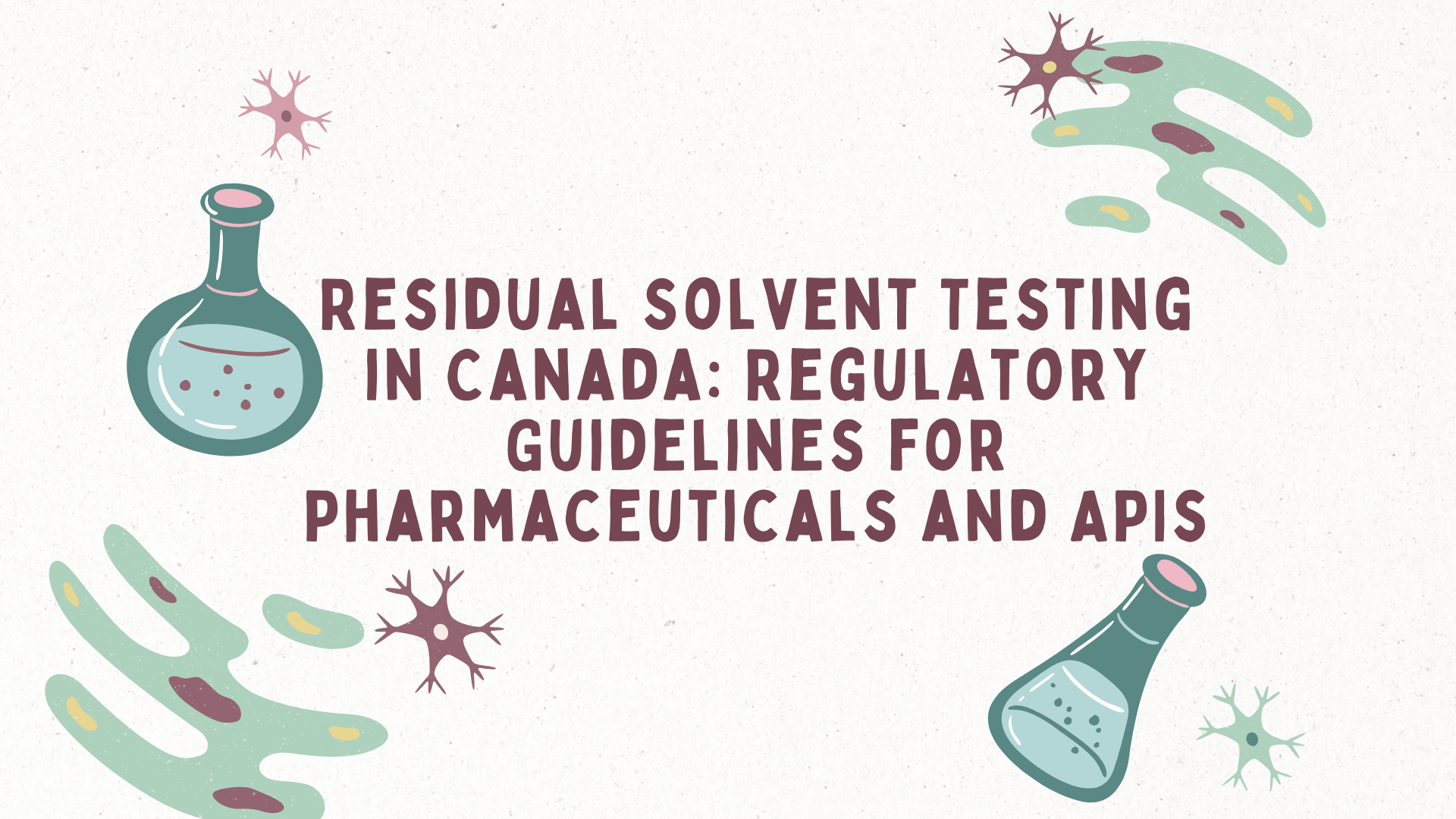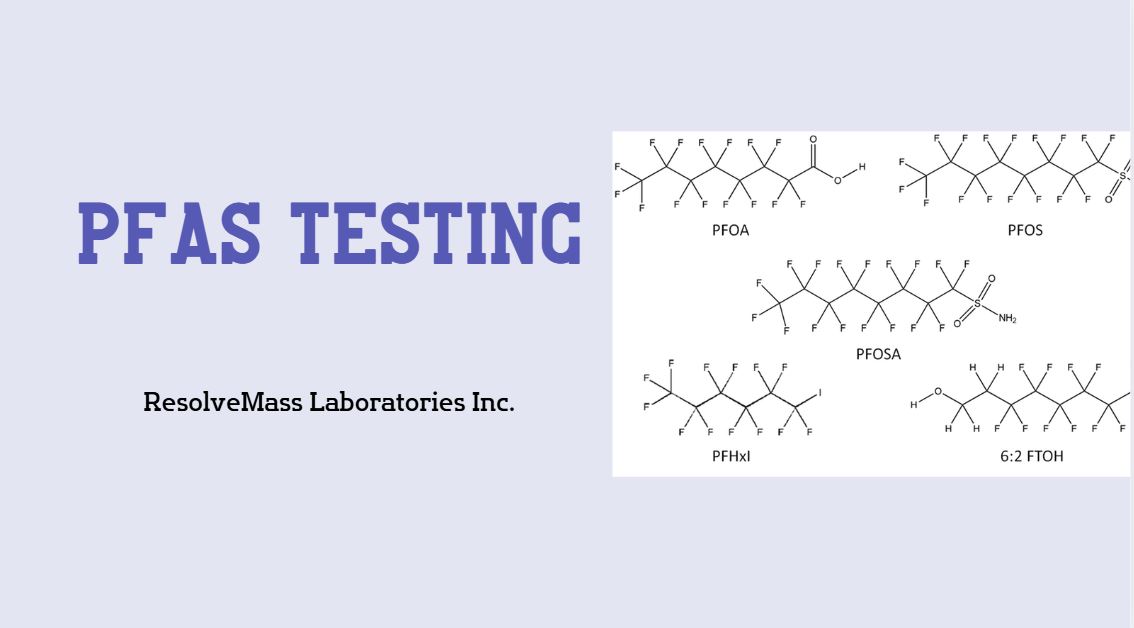In Canada’s highly regulated pharmaceutical industry, ensuring drug safety and high quality is essential. One of the key factors that must be checked during drug development and manufacturing is the level of residual solvents. Residual Solvent Testing in Canada is a mandatory quality control process for pharmaceuticals and Active Pharmaceutical Ingredients (APIs), focused on detecting and quantifying organic volatile impurities that may remain from the manufacturing process.
At ResolveMass Laboratories Inc., we specialize in high-precision Residual Solvent Testing in Canada, making sure your products meet all Health Canada and international regulatory requirements. In this blog, we’ll guide you through the Canadian regulatory landscape, testing methodologies, industry standards, and a real-life example that shows our analytical capabilities and commitment to quality.
Watch the Complete Guide: Residual Solvent Testing in Canada
What Are Residual Solvents?
Residual solvents are organic volatile chemicals that are used or produced during the manufacture of drug substances, excipients, or drug products. Even though they are not meant to be in the final product, trace amounts can remain and may cause health problems. That’s why, regulatory authorities like Health Canada, the FDA, and ICH (International Council for Harmonisation) have set strict guidelines for their allowable limits.
Why is Residual Solvent Testing in Canada Essential?
Residual Solvent Testing in Canada is not just a rule to follow—it’s a safeguard for public health. Health Canada, through its alignment with ICH guidelines (specifically ICH Q3C), requires the identification and quantification of these solvents in any pharmaceutical formulation. This makes sure the final drug product is safe for human consumption.
- Prevents toxicity and adverse effects in patients.
- Ensures manufacturing consistency.
- Complies with international regulatory standards.
- Supports product approval and market entry in Canada.
Explore our full capabilities here:
👉 Residual Solvent Testing Services – ResolveMass Laboratories Inc.
Regulatory Guidelines for Residual Solvent Testing in Canada
1. Health Canada & ICH Q3C Guidelines
Canada follows the ICH Q3C guideline, which classifies residual solvents into three categories:
- Class 1: Solvents to be avoided (e.g., benzene, carbon tetrachloride)
- Class 2: Solvents to be limited (e.g., methanol, acetonitrile)
- Class 3: Solvents with low toxic potential (e.g., ethanol, acetone)
Acceptable limits vary depending on solvent toxicity, route of administration, and daily exposure thresholds.
2. USP <467> Compliance
United States Pharmacopeia (USP) general chapter <467> is also accepted in Canada for residual solvent testing. It includes:
- Procedure 1: Class 1 and Class 2 solvents using static headspace GC.
- Procedure 2: Class 3 solvents using direct injection.
Techniques Used for Residual Solvent Testing in Canada
At ResolveMass Laboratories Inc., our expert analytical chemists use advanced tools to carry out Residual Solvent Testing in Canada, such as:
- Gas Chromatography (GC) with Flame Ionization Detector (FID)
- GC with Mass Spectrometry (GC-MS) for confirmatory analysis
- Static Headspace GC for volatile solvent quantification
- Validated methods as per ICH and USP
These techniques allow accurate quantification down to ppm levels, supporting robust regulatory submissions.
🔬 Learn more about our GC testing setup here:
👉 Residual Solvent Testing at ResolveMass
Real-Time Case Study: Accelerating API Approval with Accurate Residual Solvent Testing
Client: A Canadian pharmaceutical startup developing an anti-inflammatory API for Health Canada submission.
Challenge: The client had used dimethylformamide (DMF), a Class 2 solvent, in the final synthesis step. They needed fast Residual Solvent Testing in Canada to meet submission deadlines.
Solution:
ResolveMass Laboratories developed a method for DMF detection using static headspace GC-FID. The LOD (Limit of Detection) achieved was 5 ppm, well below the ICH limit of 880 ppm. Full validation was completed within 72 hours.
Result:
- Certificate of Analysis (CoA) delivered in 3 business days
- Successful regulatory filing with Health Canada
- No deficiency letter related to impurity profile
This case exemplifies how precision testing can directly impact your time-to-market.
📈 Check our fast-turnaround testing services:
👉 Residual Solvent Testing – ResolveMass
When Should You Perform Residual Solvent Testing?
- During method development of new drug formulations
- As part of routine quality control in GMP manufacturing
- For batch release testing and CoA issuance
- Before Health Canada or FDA submission
- For investigational new drugs (INDs) and clinical trials
Residual Solvent Testing in Canada should be an integral part of your product development strategy—not an afterthought.
Why Choose ResolveMass Laboratories for Residual Solvent Testing in Canada?
- ISO/IEC 17025 Accredited Lab
- Health Canada and FDA Compliant Methods
- Rapid Turnaround Time (2–5 Days)
- Personalized Scientist-to-Scientist Communication
- Detailed Reporting & Regulatory Documentation
📄 See a sample CoA and learn more:
👉 Residual Solvent Testing Details
Commonly Tested Solvents in Canadian Pharmaceutical Products
| Solvent | Class | Limit (ppm) |
|---|---|---|
| Benzene | 1 | 2 |
| Toluene | 2 | 890 |
| Methanol | 2 | 3000 |
| Acetonitrile | 2 | 410 |
| Ethanol | 3 | 5000 |
These levels are strictly enforced through Residual Solvent Testing in Canada using validated methods.
Conclusion
Residual Solvent Testing in Canada is not just a regulatory requirement—it’s a testament to pharmaceutical quality, patient safety, and scientific integrity. At ResolveMass Laboratories Inc., we provide fast, reliable, and regulatory-compliant testing services for residual solvents in both drug products and APIs. Whether you’re preparing for a Health Canada submission or routine GMP release, our laboratory is your trusted partner.
🔍 Learn more about our full suite of analytical solutions:
👉 Residual Solvent Testing in Canada – ResolveMass
📬 Ready to get started? Reach out to our scientific team:
👉 Contact ResolveMass
👉 Get a Quote
👉 Schedule a Consultation
10 Most Asked FAQs About Residual Solvent Testing in Canada
1. What are residual solvents in pharmaceuticals?
Residual solvents are trace organic volatile chemicals left behind from manufacturing processes. They are not meant to be in the final product and can be toxic if present above regulatory limits.
2. Is residual solvent testing mandatory in Canada?
Yes. Residual Solvent Testing in Canada is required by Health Canada for all drug products and APIs. It must follow ICH Q3C and/or USP <467> standards.
3. How are residual solvents classified?
ICH Q3C divides them into:
- Class 1: Avoidable
- Class 2: Limited use
- Class 3: Low-risk solvents
4. What techniques are used in Canada for residual solvent testing?
Primarily:
- Headspace GC-FID
- GC-MS for confirmation
- Direct injection for Class 3 solvents
5. What is the turnaround time at ResolveMass for residual solvent testing?
2–5 business days depending on complexity. Expedited 48-hour service is available on request.
6. Do Canadian labs accept USP <467> methods?
Yes. Both ICH and USP protocols are recognized by Health Canada. ResolveMass is experienced in both.
7. Can you detect Class 1 solvents at very low ppm levels?
Absolutely. We regularly detect Class 1 solvents like benzene at or below 2 ppm using sensitive methods.
8. How much sample is needed?
Typically 100–500 mg of sample is sufficient for complete analysis. Our team will guide you depending on the type of material being tested.
9. Is documentation from ResolveMass suitable for Health Canada?
Yes. All our CoAs and validation documents are formatted to meet Health Canada, FDA, and EMA expectations.
10. Can residual solvent testing be done for excipients?
Yes. Residual Solvent Testing in Canada applies to APIs, excipients, and finished drug products.


